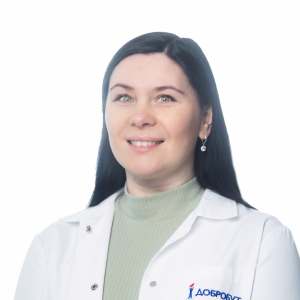Meningococcal infection in children

Meningococcal infection is an acute infectious disease caused by meningococcus (Neisseria meningitidis). The disease is widespread throughout the world and is associated with a high mortality rate (5-15%), even with a high level of medical care. The infection is transmitted only from person to person by airborne droplets. The incubation period is from 2 to 10 days. Epidemics of the disease most often occur in the winter and spring months. The younger the child, the more likely he is to die. Therefore, vaccination of children against meningococcal infection is the best way to preserve the health of babies.
The local form includes nasopharyngitis (inflammation of the oropharynx). The symptoms of the disease are very similar to acute respiratory viral infections. The child's body temperature rises, a runny nose appears, there is a tickle in the throat, and the lymph nodes enlarge. The focus of inflammation is mainly on the back wall of the pharynx. In many cases, meningococcal nasopharyngitis does not progress to a generalized form of the disease – meningococcemia and/or meningitis.
Meningococcal meningitis is an infectious disease of a bacterial nature, in which the membranes of the brain are affected. The disease begins acutely, the first symptoms are an increase in temperature to 38-40°C, chills, increased sensitivity to light (photophobia); often inflammation of the mucous membrane of the pharynx. The child becomes lethargic, sometimes this is combined with capriciousness, irritability. During the examination, the pallor of the skin attracts attention. The child complains of a severe headache, which is often accompanied by vomiting. As a result of the development of cerebral edema, consciousness may be impaired in the first hours of the disease, convulsions occur. Characteristic meningeal symptoms appear quite early: the head is thrown back due to rigidity of the muscles of the back of the head, hyperesthesia is manifested with every movement or touch. If the child is seated, he/she leans on his/her hands that are pulled back. The infant has a tense fontanelle, pronounced hyperesthesia, when trying to stand on his/her feet, the baby does not lean on his/her feet, but pulls them up (Lesage's symptom).
Meningococcemia (meningococcal sepsis) is one of the severe forms of generalized meningococcal infection. It begins suddenly, with a rise in temperature to 39-40°C and severe intoxication. Headache, muscle pain, and pale skin appear. After some time, a spotty-papular rash without a specific localization is observed on the skin. After a few hours, a hemorrhagic ("stellate") rash appears on the skin of the buttocks, thighs, lower legs, and lower half of the body. With this form of infection, many organs are affected, infectious-toxic shock develops. This variant of the disease often proceeds fulminantly. The outcome depends on the child’s age and the form of the disease (the more and deeper the organ systems are affected, the worse the prognosis). The younger the child, the higher the mortality rate.
Timely emergency care is a chance to prevent the development of the disease. The rapid development of meningococcal infection often leads to death within 1-2 days from the onset of the disease, or to serious consequences, even in cases of early diagnosis and optimal treatment. Therefore, immunization using safe and effective vaccines is the only rational approach to combating meningococcal infection. Currently, the vaccination calendar of many countries, in particular, the UK, Austria, Spain, the Netherlands, and the USA, includes mandatory vaccination of children against meningococcal infection. In Ukraine, this vaccination is included in the list of recommended vaccinations. At the same time, for a child to go to children's holiday camps abroad, this vaccination is mandatory when issuing a medical certificate.
Today, the children's medical centers of the Dobrobut Children's Hospital have sufficient quantities of the vaccine against meningococcal infection.
Reviewer of the article - Rykova Stanislava Oleksandrivna



















































































































































%402x.png)
%402x.png)
